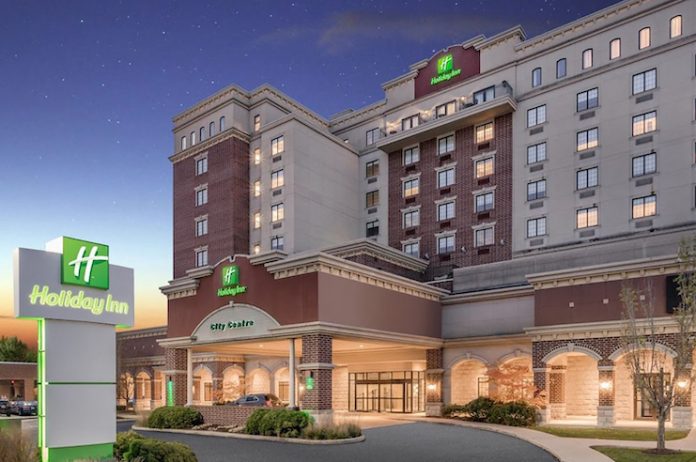
Terrapin Hospitality CEO Tony Sherman is growing the company he created to manage his own hotels by taking on third-party management contracts. The company’s portfolio of such contracts was recently doubled by its acquisition of K Partners in 2021 and the addition of 17 third-party management contracts to its company announced at the 2022 Hunter Hotel Investment Conference. As he told LODGING, the acquisition conforms to the company’s current growth plan and includes some interesting new types of properties.
What’s the latest on your growth trajectory?
We break out two main components of our growth drive. The first is our acquisition of K Partners, a leading third-party hotel management company located in San Antonio, Texas. And in the first quarter of 2022, we added 17 properties with over 2,400 keys to our managed portfolio. We would like to bring our total to 200 hotels in the next 36 months.
How and why did you get into the third-party management part of the business?
I actually created the management company to manage my own hotels, but when the buyer of a couple of Hampton Inns I sold asked me to continue managing them, I realized I could branch into acquiring more third-party contracts. It was hard at first, but we’ve gained so much momentum, I almost have to pump the brakes now because my team is just on the road constantly. The takeover part is especially hard—there are so many moving parts—but once you have a GM and are integrated, with the payroll ad system all, it’s fun and exciting.
How are you keeping up with the staffing aspect of growth?
Hiring good people is the biggest struggle for everyone. There’s always a lot of turnover in the entry-level and lowest-paid positions, like housekeepers and front desk agents, but, fortunately for us, our general managers and corporate staff at our company tend to stay. My problem isn’t losing people; it’s keeping up with growth. We recently got lucky in hiring a controller—to help our overworked long-time CFO Mardi Ketchum—through Indeed, although we were on the verge of spending about $30,000 to hire through a recruiter. We’ve also expanded our management team with the addition of K Partner’s former owner and COO Robert Adler, who now serves as regional vice president and the promotion of Shawn Kvernen from senior vice president of business development to COO.
Once we find good people, we think in terms of retention. I never liked the idea of personnel reviews. I think it does more harm than good to tell people what they did wrong that year, but I do like what are called “stay interviews”—pretty much the opposite of exit interviews. That’s a chance to say, “Hey, we’re glad you’re here. Let’s talk about why you stay.” We can talk about what they like about the company, what keeps them here, what motivates them, and what the company can do over the coming year to keep them.
How do the newly added hotels fit into your existing portfolio and culture, and which do you find especially exciting?
These properties showcase our versatility in providing superior management to independent hotel brands, full-service properties, and glamping resorts. Each of these properties are unique in their own way, and we see vast opportunities for revenue growth to increase asset value and ensure these properties are best in class in their respective markets.
Among them, five had been managed by the largest hotel owner in New Zealand. They believed they needed professional United States–based management and we are proud that they chose us among several they interviewed to take over the job. The new hotels are in different regions and are different from one another. And one select-service hotel owner is doing a glamping resort in Dripping Springs, Texas.
At this point, we manage everything from Best Western’s Sure Stay up to Sheraton and Embassy Suites; and because we operate in 14 states, and I have eight regional managers around the country, we can handle pretty much any portfolio. In every case, it’s all about making guests comfortable, taking care of their needs. Whether they’re sleeping in a tent or a room, they want a good night’s sleep. They want clean sheets. They want everything to work properly. Further, we never forget that the owners are our customers. In fact, throughout our organization, we stress the Golden Rule, treating everyone—guests, employees, owners—as we wish to be treated; so, if someone calls you, you call them back.
What are some of the challenges that impact hotels?
Of course, there was the pandemic that no one was prepared for, but hotels have always faced the same worries faced by most businesses—such as weather events, economic volatility, and criminal activity, including theft by trusted employees.
Right now, there’s concern about inflation and the labor shortage, which are related in that the labor shortage drives up the cost of labor, which makes up 70 percent of monthly expenses. Other expenses too, including utility bills, are rising. Fortunately, in some markets—but not all— RevPAR is higher than 24 months ago, and therefore so is net operating income.
As an economics major in college, I believe there is a psychological component to inflation. Unlike labor and gas—which are matters of supply and demand—inflation is often a matter of psychology; if you think prices will go up, they will.











